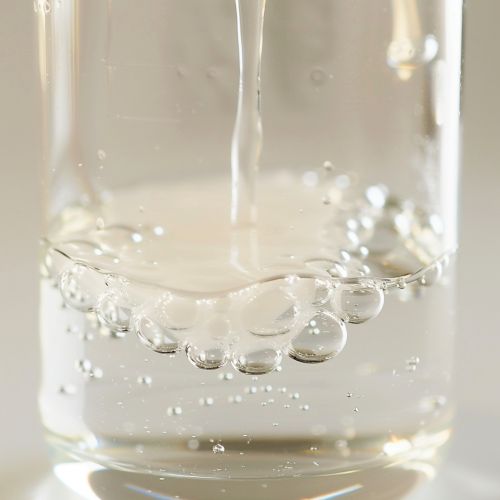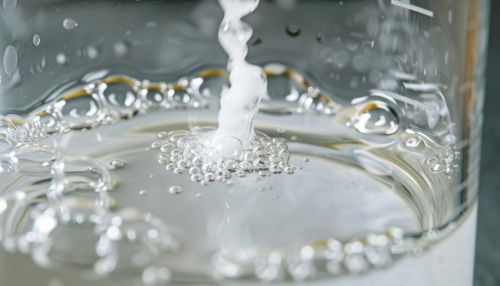Precipitation (chemistry)
Introduction
Precipitation is a fundamental concept in the field of chemistry, specifically in the area of solution chemistry. It refers to the formation of a solid substance from a solution when a reaction occurs. The solid that forms via a chemical reaction in a solution is known as the precipitate. The process of forming a precipitate is called precipitation.
Process of Precipitation
The process of precipitation involves two soluble reactants combining to form one or more insoluble products. This is often the result of a double displacement reaction, where the ions in two compounds switch places in an aqueous solution to form two new compounds, one of which is insoluble. The insoluble compound, the precipitate, then separates from the liquid solution.


Factors Influencing Precipitation
Several factors can influence the precipitation process, including the concentration of the reactants, temperature, and the presence of other ions in the solution.
Concentration
The concentration of the reactants plays a crucial role in precipitation. According to the solubility product principle, a precipitate will form when the product of the concentrations of the ions in a solution exceeds the solubility product constant (Ksp) for the compound formed by the ions.
Temperature
Temperature also significantly impacts precipitation. Generally, the solubility of solid solutes in a liquid solvent increases with temperature. Thus, a decrease in temperature can often lead to precipitation as the solubility of the solute decreases.
Presence of Other Ions
The presence of other ions in the solution can also affect precipitation. This is known as the common ion effect, where the solubility of a salt is reduced when another salt that has a common ion is added to the solution.
Applications of Precipitation
Precipitation reactions have a wide range of applications in various fields of chemistry and beyond.
Analytical Chemistry
In analytical chemistry, precipitation reactions are used in gravimetric analysis, a method of quantitative analysis that involves the measurement of the mass of the precipitate formed.
Water Treatment
Precipitation reactions are also crucial in water treatment processes. They are used to remove ions from water, such as in the process of hard water softening, where calcium and magnesium ions are precipitated out.
Medicine
In medicine, precipitation reactions are used in immunodiffusion, a technique used to detect and quantify specific antigens or antibodies.
